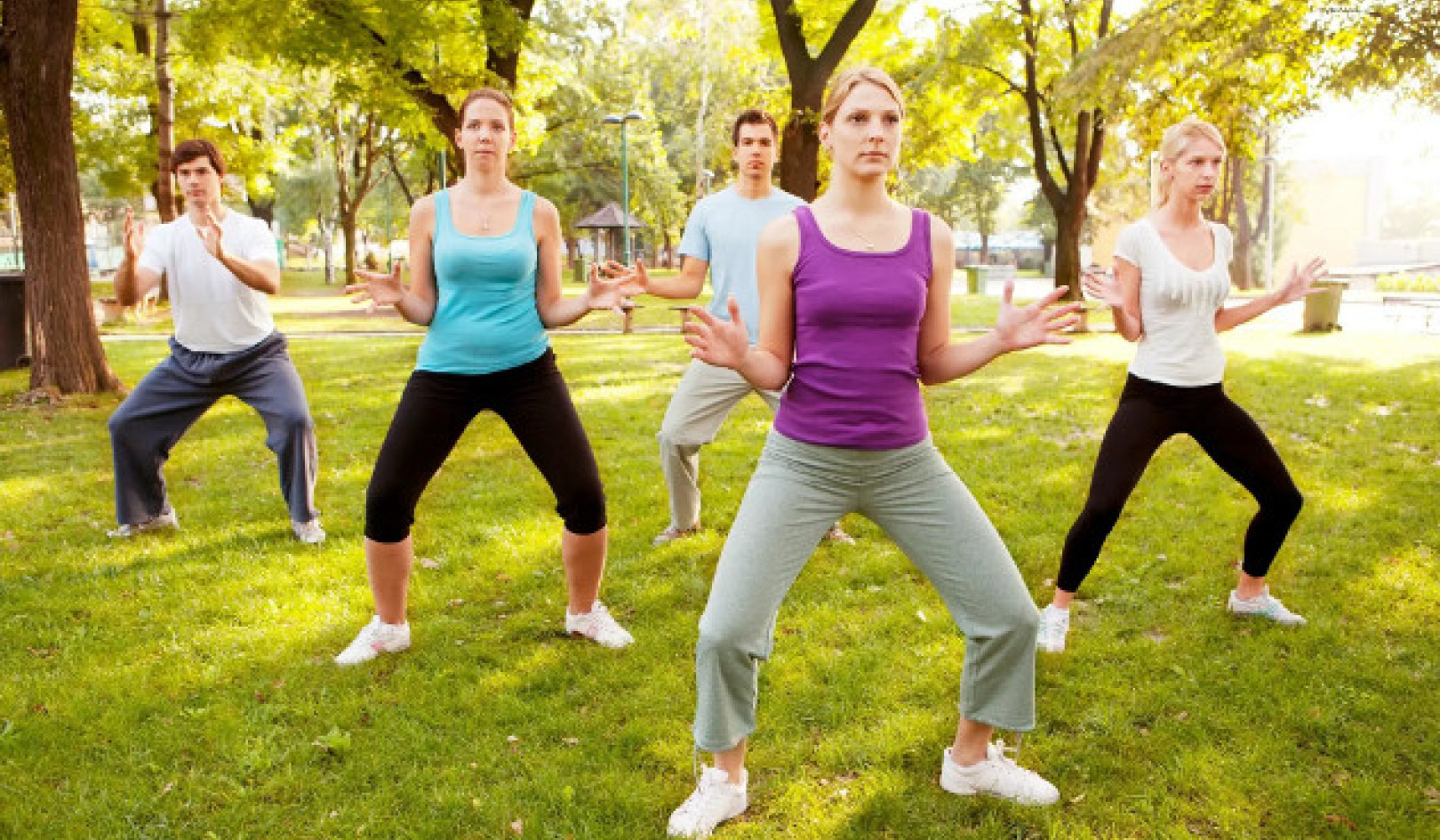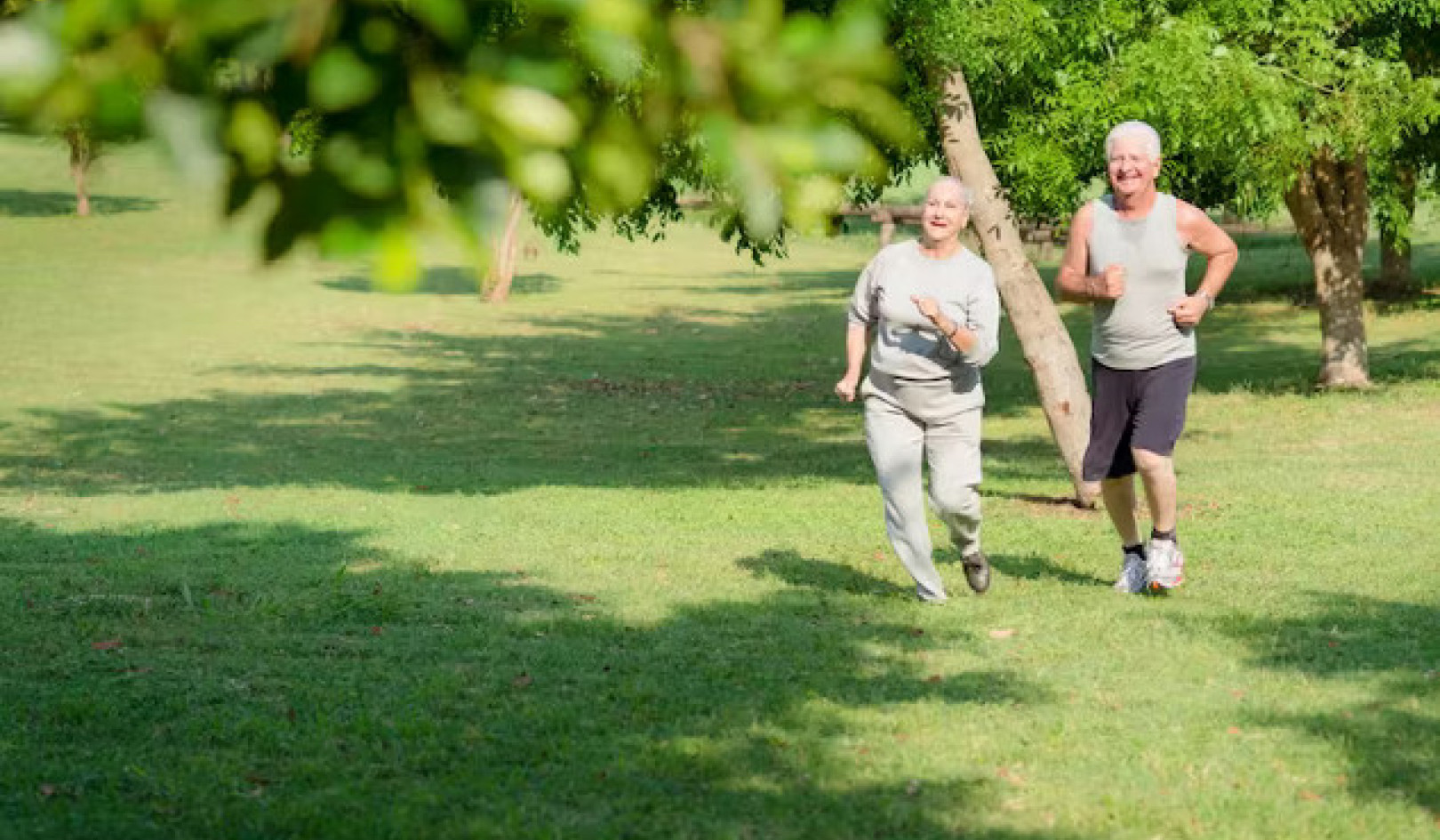
Image by RitaE
Fasting is an art. By creating space in your body, it will help create space in your life for the things you want, including loving relationships, a disease-free body, and prosperity in line with your highest ideals. How can fasting do this? When done intentionally and according to the directions in this chapter you can witness the results yourself: it starts by changing your chemistry and ends with transforming your consciousness.
Some people think you have to take drugs to change your consciousness. Others believe that motionless meditation, severe penance, or hours of ecstatic dance are necessary to slip into other states of awareness. While these techniques work, fasting is a simpler, more reliable method to alter your reality while never relinquishing control of yourself.
Fasting works by creating space in the gut, which in turn generates peace and tranquillity in the mind. When your stomach is busy digesting, it is hard to meditate, pray, or feel tranquil. When your belly’s churning and you’re passing gas it’s hard to think spiritual thoughts, because the body is busy moving food through your gut and toxins out of it. That is because the GI tract is intimately linked to the brain and the hormones in our bodies.
The gut’s enteric nervous system, also called the second brain, does 70 percent of the heavy lifting for the immune system, and gut cells produce over 90 percent of the serotonin in your body. Keeping it busy digesting your last meal means less time for the higher functions your gut performs. But when you press the reset button for 12–13 hours per day (intermittent fasting) or by taking one day a week (24–36 hours) to fast, you release the energy needed to digest your Big Mac for other things, like attaining enlightenment.
Get The Latest By Email
Fasting in the Twenty-First Century
While fasting has been around forever, science has made great strides in the past century to expose its many benefits. Studies have proved that animals (and humans) on nutrient-dense but calorie-restricted diets live longer, healthier, and more productively than those who eat normally and take vitamins and supplements. That’s right. It’s often better to eat less than to eat more and supplement with pills.
However, for most people, calorie-restricted diets are difficult if not impossible to undertake. Because of work, family, and other obligations, or a sheer lack of willpower, most folks will find the benefits of nutrient-dense but calorie-restricted diets out of reach.
Targeted Fasting
The solution is targeted fasting. Once a week or once a month choose a fasting day and practice not eating for at least twenty-four hours—from dinner the night before to dinner the day of. If not eating anything for twenty-four hours seems scary at first, try snacking on fruit when you need to, or drink green drinks like chlorella and spirulina mixed with apple or other juices. This will keep your mind energized and your body nourished while giving your system a rest.
A twenty-four-hour fast includes your normal eight hours of sleep, so you’re only really skipping breakfast and lunch. According to Vedic astrology Saturday is a good day to fast since Saturn rules discipline and penance.
A customized fast based on your horoscope, called Upapada fasting, is also a powerful way to improve your relationships by creating space for love to enter your life. A Vedic astrologer can help you find your specific Upapada fasting day. Finally, the day of the week you were born is also an option, but practically speaking you can fast any day that works for you.
Our ancestors often fasted out of necessity for lack of food, and at other times in observance of spiritual injunctions. Ramadan, Lent, and Yom Kippur represent some of these in the Abrahamic religions.
In India things are a bit more fluid. For example, followers of the elephant-headed deity Ganesha may choose to fast on Chaturthi—the fourth day of the waxing and waning moon. That means that two days every month they consciously restrict their eating. Likewise, Vaishnavites (followers of Vishnu in his many forms) may fast on ekadashi—the eleventh day of the waxing and waning moon. Whatever days you choose, stick to them for three months and you will see the results.
Sometimes fasting is thrust on us for health reasons. If you’ve binged on food or alcohol the day before it may be wise to abstain the day after. According to ayurveda, if you have white coating on your tongue, bad breath, or you are still burping last night’s dinner, you should not eat until this has cleared. A twenty-four-hour fast done once a month, or if you’re serious, once weekly, is a great way to allow your body to reset, especially after indulgence.
Longer Fasts
When you’ve practiced the twenty-four-hour fast a few times you can extend it to thirty-six hours, with dinner being the last meal on day one and breakfast the first meal on day three. That means you go an entire day without food, sleep on an empty stomach, and wake up to a nice breakfast. Health perks like leaner abs and improved lipid profiles are enormous . . . not to mention the spiritual benefits.
Moses and Jesus (literally or figuratively) fasted forty days and forty nights—not for health reasons but to connect with the Divine. Afterward their faces shone with spiritual radiance. “When Moses came down from Mount Sinai with the two tablets of the covenant law in his hands, he was not aware that his face was radiant because he had spoken with the Lord” (Exod. 34:29 NKJV).
You too can experience some of this radiance by doing an extended fast. Try going thirty-six, forty-eight, or seventy-two hours, and even doing a weeklong fast once or twice a year.
(Please consult with your doctor before considering any type of fast.)
For most people the first day or two of a prolonged fast is difficult, but after that, as your hunger shuts off, you begin to feel light and energetic, embodying the true essence of enlightenment: feeling good for no reason.
Breaking the Addiction to Food
When going without food you witness your thoughts and attitudes change. And while you won’t turn into someone else like you might when you’re drunk or high, you’ll begin to see the parts of you that are addicted to food and sensation.
When you encounter and resist hunger you witness your weaknesses and your lust and realize that you can be beyond them. You are beyond them. And while you cleanse, some of these positive changes become permanent, unlike the drug or alcohol experience, which always comes with a price and never leads to lasting progress.
Fasting also exposes just how out of control you are. Even those who think they are disciplined and self-aware are shocked by how much their lust for food and flavor rules them.
Regular fasting allows you to break your addiction to food in particular and sensuality in general. Just as we have a sensual center below, we also have one above—the tongue and its desire for taste. My mentor used to say that the tongue is the upper penis/clitoris. Abstinence from food is like abstinence from sex—it gives you control over your life and immense appreciation for food and sex when you do enjoy them!
By breaking your addiction to food with intermittent or regular fasting you will feel more in control of your life. This detachment will extend to other areas, potentially impacting how you relate to dear ones, bosses, coworkers, and the people around you.
Because food represents the basic elements of sustenance and security, by detaching from it you’ll notice that you become less attached to material objects of success, the things in life that people cling to for security—like cars, houses, money, and titles. This doesn’t mean that you don’t enjoy them—in fact you enjoy them more when they are part of your destiny to experience them. You are simply not devastated when they’re not around. This is tantamount to achieving equanimity, and as Krishna says in the Bhagavad Gita, yogah samatvam uchyate: “yoga (union or enlightenment) is tantamount to equanimity.”
The Twelve-Hour Miracle
Okay, if all this sounds great but the weekly or monthly protocol is too much to tackle at first, don’t worry. You don’t have to fast for twenty-four hours at a time to reap spiritual and health benefits. Try fasting twelve hours every day, between dinner the night before and breakfast the morning after. The word breakfast literally means breaking the no-eat period that started at the completion of last night’s dinner. Count the hours between dinner the night before and the moment you sit down for breakfast. If these total twelve or more, you’re on your way to reaping the blood sugar stabilizing, longevity-promoting, and cancer-fighting benefits of full-fledged fasting.
Studies of breast cancer patients showed that women who gave their bodies less than thirteen hours fasting time between their last meal the night before and breakfast the next day, were 36 percent more likely to get recurring breast cancer. In addition, women who allowed more than thirteen hours between dinner and breakfast without eating not only slashed their cancer risk by a third but also had improvements in sleep and blood-sugar control. The study concluded that “prolonging the length of the nightly fasting interval may be a simple, nonpharmacologic strategy for reducing the risk of breast cancer recurrence.”
However, while regular fasting of fourteen or more hours demonstrates excellent health and spiritual benefits, it may also predispose one to gallbladder problems and potential gall-stone surgery. Therefore, if you choose to fast intermittently, do so for twelve to thirteen hours a day, or if you do it for fourteen hours or longer, give yourself a day or two off from time to time.
At first you may experience hunger in the morning. The solution? Eat earlier at night. By ending your last meal around 7:00 p.m. you can easily have breakfast the next day between 7:00 and 9:00 a.m., allowing twelve to fourteen full fasting hours. If your work schedule doesn’t allow it or you don’t mind skipping breakfast, then you can eat later at night and go straight to lunch the next day. Just like any exercise, you have to practice the twelve-hour miracle. Soon it will become second nature.
Intermittent Fasting: The Next Step
In his book The Warrior Diet, Ori Hofmekler advocates time-restricted eating—not eating most of the day and feasting in the evening. Though this sounds like it would put on weight, when done right it is massively effective for shredding body fat and packing on lean muscle tissue. That’s because it teaches your body to be a more efficient fat-burning machine. In addition, this type of eating carries the anti-aging, free-radical scavenging properties that all fasts provide.
Our bodies have built-in survival mechanisms that know how to deal with food shortages by adapting and making our systems more efficient. And because this style of time-restricted feeding allows you to snack on small amounts of raw vegetables and other foods (see Hofmekler’s book for all the details), this may avoid some of the gallbladder issues present with long-term intermittent fasts that allow nil by mouth during the deprivation phase.
Start the protocol by reducing your daily eating window to ten hours. That means that you’re fasting for fourteen hours between yesterday’s dinner and today’s lunch. This way you get the cancer-fighting, sugar-balancing benefits outlined above. When you’re ready, try reducing the feeding window to eight hours, then six, and eventually down to four hours a day. Some high-level athletes and fasting aficionados go a step further and eat only one big meal confined to a one- to two-hour window. Contrary to what you may think, they are mighty buff, lean, and energetic.
If this doesn’t make sense to you then you’ve probably swallowed the “calories in, calories out”dish that nutrition “experts” have been serving for the past sixty years. The truth is, as studies in calorie restriction prove, it is nutrition that counts, not calories. When your body is adequately nourished by macronutrients and micronutrients you can survive and thrive on intermittent fasting (easy) and even time-restricted diets (harder to do).
If you’ve ever watched a child play all day on a peanut butter sandwich you realize that it’s not only calories that count. Hormones play the major role in human growth and decay. That peanut butter sandwich hardly contains enough nutrients to power a child’s energy expenditure—not to mention to grow its bones, brain, and body to the point that a child outgrows its clothes every six months. Why can’t you do that as an adult, even eating twenty peanut butter sandwiches per day? Because you don’t enjoy the same hormone cocktail you did when you were a kid.
But there is a way to restore your hormone balance to optimal levels, no matter your age. Fasting improves levels of human growth hormone as well as testosterone and other hormone profiles. Ghrelin is the hormone that makes you feel hungry, and it’s released in response to food deprivation. Ghrelin increases the expression of brain-derived nerve growth factor, which is responsible for producing more neurons in the brain. This is why many advocates and yogis who fast regularly report better memory and improved cognitive function. You literally get smarter when you fast—or at least you are able to access your innate intelligence, since fasting burns away the mud from your inner mirror.
Another physical benefit to fasting is reduced sugar intake. A therapist once told me: “Simon, sugar = pain.” How right she was! The less sugar circulating in your body, the less damage to your organs, joints, brain, skin, and gut and the longer possible life span for the organism as a whole. In addition, the less sugar you consume, the more efficient your body becomes at using fat as a fuel, training you to be a better fat burner.
Here’s how to practice time-restricted eating.
- Work up to fasting twelve to fourteen hours per day (don’t worry—this includes your eight hours of sleep).
- If you choose a longer fasting phase as described in Ori Hofmekler’s Warrior Diet, you can snack on small amounts of raw fruits and vegetables, including beneficial herbs like parsley and oregano and superfoods like chlorella. You can have a piece of raw chocolate. Water and coffee are also allowed, as are good sources of protein such as grass-fed whey and raw cheese, but no big meals. Snacking means that you’re never fully satiated—you simply grab a bite to appease your hunger and keep going.
- During the evening feeding phase eat whatever you like. Start with vitamin-rich foods like greens and superfoods, then move to proteins and fats, ending with carbohydrates (dessert!). Please also note that these foods and times listed for the evening window are guidelines. Follow your body’s wisdom and adjust as necessary.
Fluids & Fasting
As stated, you can have coffee during the fasting phase to blunt hunger and stay alert. However, do not drink coffee first thing in the morning or after you eat in the evening. This may dehydrate you or keep you up at night. First thing in the morning drink sixteen ounces of room-temperature water. However, because water nourishes the bicarbonate buffer in your stomach, this produces more hydrochloric acid, which will make you hungry. (If you have no idea what a bicarbonate buffer is, or why it makes you hungry, please see my book Sex, Love, and Dharma. Along with dozens of recipes you’ll also find my favorite book section title ever: “Me and Bobby McGhee,” a whole section devoted to coffee and butter.)
Be judicious with your water intake as well, especially early in the morning. Sip and swish it in your mouth before swallowing. This helps absorption, allowing you to drink less and get more benefit. Wait at least an hour before having coffee. Use coffee as an antioxidant-rich tool to keep your intermittent fast going during the day. Consider blending a teaspoon or two of ghee with your coffee to make a cappuccino-style drink that offsets the negative side effects of coffee while oleating your GI tract. (You can skip this if you prefer a zero-calorie fast.)
When you start getting hungry consider drinking sparkling water. This will also help to give you a feeling a fullness while keeping you hydrated. Sparkling water gives a greater sense of satiety than water alone and can be enjoyed as a luxurious drink rather than something you just gulp down.
What to Do While Fasting
- Nap: During a fast your body may demand extra rest. Give it what it wants to quench its long-standing need for rejuvenation and repair. Allow plenty of time for napping, lounging, and sleeping. Doing so will also keep the hunger pangs away. When you feel too tired to exercise or even walk, take a nap. When we eat food and drink coffee to push on we mask the body’s natural fatigue signals, further depleting our system. By fasting you allow your body to tell you exactly what it needs. If it needs rest, give it rest. For this reason fasting on weekdays may not be convenient if you have to work or do chores. But if you can take the day off and spend it tuning in to your body, mind, and spirit, you will find yourself rejuvenated for the week to come.
- Shop: Another way to spend your fasting day is to get out of the house and treat yourself with something nice. Go ahead, reward yourself, you deserve it! People are generally in a positive mood when treating themselves, and whether it’s a tie, a new purse, or even just window-shopping, getting yourself something nice while fasting is a great motivator. After all, you are saving money by not eating so why not spend it treating yourself?
©2018 by Simon Chokoisky. All Rights Reserved.
Reprinted with permission of the publisher, Destiny Books,
a division of InnerTraditions Intl. www.innertraditions.com
Article Source
The Dharma Method: 7 Daily Steps to Spiritual Advancement
by Simon Chokoisky In this practical spiritual guide, Simon Chokoisky shares 11 time-tested yet simple daily techniques to help you find your spiritual path, or “dharma,” no matter what your spiritual background -- be it Christian, Hindu, Buddhist, or Agnostic. He explains how everyone has a unique learning style as well as a spiritual style -- your “Dharma type” -- and how the Dharma method allows you to pick any seven of the 11 methods described in the book to practice. You can even change them daily, all based on your unique needs. And by holding to the 7/11 “rule” daily, you’ll soon find yourself on the road to rapid spiritual progress and personal enlightenment.
In this practical spiritual guide, Simon Chokoisky shares 11 time-tested yet simple daily techniques to help you find your spiritual path, or “dharma,” no matter what your spiritual background -- be it Christian, Hindu, Buddhist, or Agnostic. He explains how everyone has a unique learning style as well as a spiritual style -- your “Dharma type” -- and how the Dharma method allows you to pick any seven of the 11 methods described in the book to practice. You can even change them daily, all based on your unique needs. And by holding to the 7/11 “rule” daily, you’ll soon find yourself on the road to rapid spiritual progress and personal enlightenment.
(Also available as an Audiobook and as a Kindle edition.)
About the Author
 Simon Chokoisky is a pioneer in using Vedic Astrology and Dharma Typing to help people discover their soul’s purpose. He runs a private consulting business based on his trainings in Vedic life mapping and Vedic Astrology. The author of The Five Dharma Types, Gambler’s Dharma, and Sex, Love, and Dharma as well as the creator of the Decoding Your Life Map with Vedic Astrology DVD series, he travels widely conducting seminars. Visit his website at http://spirittype.com
Simon Chokoisky is a pioneer in using Vedic Astrology and Dharma Typing to help people discover their soul’s purpose. He runs a private consulting business based on his trainings in Vedic life mapping and Vedic Astrology. The author of The Five Dharma Types, Gambler’s Dharma, and Sex, Love, and Dharma as well as the creator of the Decoding Your Life Map with Vedic Astrology DVD series, he travels widely conducting seminars. Visit his website at http://spirittype.com















